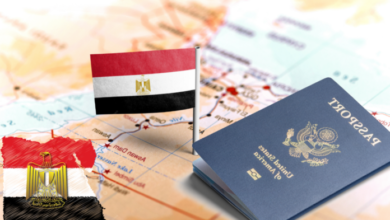In a world constantly shifting between political, social, and personal transformations, the concept of Hürrilet offers a profound lens through which we can understand the true nature of freedom. Derived from Turkish, “Hürrilet” signifies a state of liberation, free will, and autonomy that transcends mere absence of constraints. But what does hürrilet freedom really mean? Is it an individual pursuit, or is it tied to the collective experience? This article delves into the historical, philosophical, and social dimensions of Hürrilet, exploring its relevance in contemporary society and its significance in personal development.
The Historical Roots of Hürrilet
The journey of Hürrilet begins in antiquity, though the term itself emerged within the context of Turkish culture. Its etymological roots, tracing back to the Arabic word “hurr,” which means “free” or “independent,” highlight the deep connection between freedom and self-determination in the region. Throughout history, the quest for Hürrilet was marked by various political and social movements, each striving to define and protect the rights of individuals and communities.
In the Ottoman Empire, for example, concepts of freedom were deeply tied to religious and social norms. Yet, with the collapse of the empire and the rise of the Turkish Republic in the early 20th century, the understanding of Hürrilet evolved. Leaders like Mustafa Kemal Atatürk introduced reforms that emphasized secularism, individual rights, and national sovereignty, redefining what it meant to be “free” in a modern, post-Ottoman context.
Key events like the Turkish War of Independence and the subsequent formation of the Republic reflected the struggle for freedom on both a national and personal level. Hürrilet, in this regard, became a symbol of the nation’s liberation from foreign domination and its quest for self-governance. In the decades that followed, the term expanded in meaning, addressing not only national independence but also individual liberty, social justice, and gender equality.
Hürrilet in Philosophy: The Quest for True Freedom

Philosophically speaking, Hürrilet is often explored in relation to other ideas such as autonomy, liberty, and self-determination. Freedom is a broad concept, and its philosophical roots trace back to ancient Greece, where philosophers like Socrates, Plato, and Aristotle first grappled with the nature of human autonomy and governance. While Hürrilet isn’t a term originally used in Western philosophy, its essence is reflected in the classical ideas of “freedom” and “self-determination.”
In modern philosophical discussions, Hürrilet shares much in common with John Stuart Mill’s concept of liberty, particularly in his work On Liberty, where he argued that individuals should have the freedom to pursue their own happiness as long as they do not harm others. Similarly, Hürrilet emphasizes the importance of personal choice, independence from external restrictions, and the ability to express one’s identity without fear of repression.
However, the concept of Hürrilet is not without its challenges. Some philosophers argue that true freedom cannot exist without social and economic equality. They assert that for one to truly be “free,” the societal structures that create inequality—such as class systems, racial discrimination, and unequal access to resources—must be dismantled. This nuanced interpretation of Hürrilet suggests that freedom is not an individual experience but one that is shared collectively by society as a whole.
In contemporary discourse, the idea of Hürrilet has become central to debates on human rights, democracy, and justice. Whether it’s in the context of gender equality, racial liberation, or digital freedom, the principles of Hürrilet continue to challenge societies to confront systemic inequalities and work towards a more equitable future.
Hürrilet in Modern Society: Application and Challenges
In modern society, Hürrilet has become more than just an abstract philosophical idea—it’s a core principle that underpins civil rights movements, democratic institutions, and social justice causes. As global conversations around freedom and equality gain traction, the notion of Hürrilet is continuously redefined by political, social, and cultural forces.
For example, in Turkey, Hürrilet continues to be a central theme in political discussions. The fight for freedom of expression, the right to protest, and the protection of individual privacy are at the heart of the nation’s democratic aspirations. However, the complexities of governance, political dissent, and authoritarian tendencies in some regions create tension around what true freedom entails. In authoritarian systems, the concept of Hürrilet is often suppressed or twisted to serve the agendas of those in power.
On a global scale, Hürrilet intersects with debates over civil liberties in authoritarian states, surveillance, and digital rights. With the rise of social media and online platforms, Hürrilet has taken on new dimensions, particularly in terms of digital freedom. In this era of pervasive technology, individuals often face surveillance, censorship, and the loss of privacy—issues that challenge the very essence of Hürrilet. The question arises: Can freedom truly exist in a world where personal data is constantly monitored and governments or corporations control the flow of information?
Despite these challenges, the modern pursuit of Hürrilet remains crucial. The global fight for racial equality, gender justice, and the protection of basic human rights all reflect the ongoing struggle to achieve Hürrilet for all. Whether through international organizations like the United Nations or grassroots movements, the push for freedom continues to resonate worldwide.
The Role of Hürrilet in Personal Development
Beyond its societal and political applications, Hürrilet plays a vital role in personal growth and individual development. It serves as a cornerstone for self-actualization, enabling individuals to explore their passions, express their identities, and pursue their goals without fear of external interference.
In personal relationships, Hürrilet is foundational to mutual respect and autonomy. The freedom to make one’s own choices without coercion or domination is essential to healthy relationships. For example, in a partnership or family dynamic, each person should feel free to express their needs and desires, while respecting the freedom of others to do the same. This balance of autonomy and respect fosters deeper connections and healthier interactions.
In the professional realm, Hürrilet encourages individuals to pursue careers that align with their passions and values, free from societal expectations or limitations. The ability to choose one’s career path, define success on one’s own terms, and contribute meaningfully to society is a manifestation of personal Hürrilet.
Moreover, Hürrilet encourages individuals to embrace their creativity and pursue their unique potential. Whether it’s through art, writing, entrepreneurship, or any other form of self-expression, the freedom to create and innovate is a powerful force for personal fulfillment and societal progress. In this sense, Hürrilet is not just a political or philosophical idea but a deeply personal one that shapes who we are and who we aspire to become.
Conclusion
The concept of Hürrilet is an essential aspect of our collective and individual lives. From its roots in history to its philosophical implications, Hürrilet embodies the enduring struggle for freedom, equality, and self-determination. In today’s world, where personal liberties are constantly under threat, understanding the meaning of Hürrilet and striving to protect it is more important than ever.
As societies continue to evolve, the principles of Hürrilet offer a guiding light, urging us to create environments where freedom is not just an ideal, but a reality experienced by all. The challenges are significant, but the pursuit of Hürrilet remains one of the most important and transformative endeavors of our time.
Frequently Asked Questions (FAQs)
- What does “Hürrilet” mean?
- Hürrilet refers to the concept of freedom, autonomy, and liberation. It originates from the Turkish language and signifies the state of being free from external constraints.
- How is Hürrilet different from liberty and freedom?
- While the terms are similar, Hürrilet emphasizes personal autonomy and the ability to make independent choices, often in the context of cultural and societal norms.
- Why is Hürrilet significant in modern-day societies?
- It serves as a foundation for civil rights, democracy, and social justice movements, making it a vital concept for ensuring equality and protecting individual freedoms.
- What are the challenges of achieving Hürrilet in today’s world?
- Challenges include political oppression, social inequality, and digital surveillance, all of which can restrict true freedom and autonomy.
- How can Hürrilet be applied to improve personal development?
- By fostering self-expression, autonomy, and choice in personal relationships and careers, Hürrilet helps individuals pursue their passions and achieve fulfillment.
- Is Hürrilet recognized and practiced globally?
- While the term itself may not be widely recognized, the principles of Hürrilet resonate in global movements advocating for freedom, human rights, and social justice.
- What are the philosophical implications of Hürrilet?
- Philosophically, Hürrilet challenges us to rethink the relationship between freedom, society, and individual autonomy, often prompting debates about equality and justice.
- Can Hürrilet exist in a society with strict regulations or laws?
- The tension between individual freedom and societal regulations is a major challenge. True Hürrilet requires a balance between personal autonomy and social responsibility.
You May Also Read:https://booksnews.co.uk/




